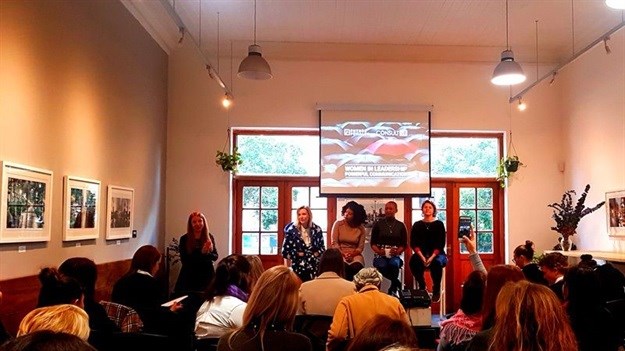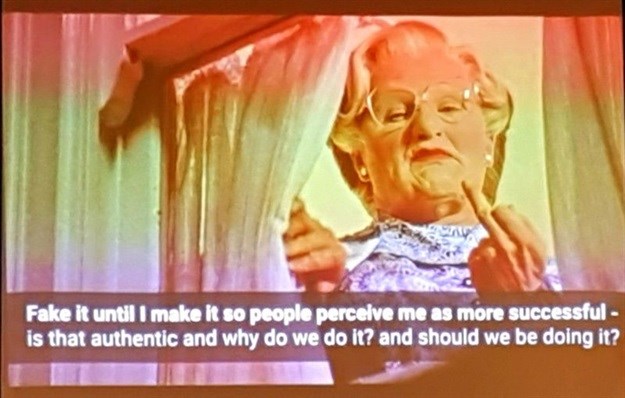#FairnessFirst: Code-switching and dealing with queen bees in the workplace

Last week, I attended the fourth event in Future Females Cape Town’s leadership series, intended to empower and educate female leaders.
Led by Jackie Palmer, who is founder of ConsultUp, director at WorkXO Africa and a results coach, the focus was on powerful communication, with the intention to develop deeper self-awareness of the impact of behaviour and communication on others.
Panelists included communications expert Sarah Rice, who asserts that context is everything; finance powerhouse Palesa Catterall; Rabi Khobane of Unilever, who joked that her biggest career achievement to date is being told she ‘laughs too loudly’; and the ad industry’s own Julie Maunder of iDidTht, who spoke of her ‘bad taste in music’ and not liking being told what to do… except by Taylor Swift.
While the four topics of the day were discussed by the panel, there were also two empty seats up front to encourage attendees to also make a contribution.
How do you tell your story?
The topics for the morning had been decided based on popularity through a Facebook poll, and covered the following:
- Fake it until I make it so people perceive me as more successful – is that authentic and why do we do it? Should we be doing it?
- Masculine vs. feminine styles of communication – does one get us more ahead?
- Radical transparency in the workplace – what's the right way?
- Why do we have queen bees in the workplace and is this changing?
The debate was fierce, and as it’s a networking event with limited space, we had a speed networking session of introducing ourselves to those around us.
In the context of the broader conversation, Palmer then had us reflect on how we had introduced ourselves, what we led with and what information we chose to exclude. It led to the first topic of the day, namely whether our communication style is authentic or merely a case of ‘playing the game’.
Every time we communicate, we choose which information to include. As a result, we tend to start with what we do as it takes up 80% of our time, and then, if we feel we are in a safe space, we slip in our passions and what we most enjoy doing.

The discussion on authenticity included the difference between faking it and confidence or self-belief and vulnerability.
We need to tell our stories so they become the norm, in the workplace and society. It’s not about making people uncomfortable but about going after what you want.
In an office environment, politicking happens whether you like it or not. So look at your environment and see what you can and can’t safely do and say in that context.

On the topic of different communication styles, Catterall brought up the stats on how many words a day men speak as opposed to women.
While the figures vary per study, the end result is almost always women speaking three times as much as men. She feels the discrepancy is proof that women over-explain, which is not necessary.
Why women over-explain
Khobane said she does this herself and has to consciously make an effort not to start an email with: “I just wanted to update you on...”
Admitting it’s a generalisation; Maunder said men tend to present opinions as facts, whereas women present facts as opinion.
Rice also mentioned the power of talking ‘under the table,’ something that happened for generations with females, and we are only now taking back that power. Sometimes you have to knock down the door with a machete to see the path you’ve paved.
So be gentle with the women who have come before you, who have fought that initial battle of being heard.Rice also spoke of the prevalence of code-switching, and that doing so is quite literally bad for your health. It’s when you behave in a way that’s utterly inauthentic to who you really are, and we often don’t realise we are doing so.
Addressing those elephants in the room with radical transparency
The topic of radical transparency got the most votes in the Facebook group poll, largely due to the popularity of the Ray Dalio book.
In essence, we’re not having honest conversations, which is ruining relationships – in all aspects of our lives. Maunder says in a place of true radical transparency, everybody will know everything about each other, even their salary.
That’s the extreme sense, which may prove counter-productive, but if you define the rules and goals in implementing radical transparency, you can get everyone to be more honest in the moment, so you make faster decisions and are more productive.
Catterall added that as employees, we often know of ways to improve efficiency in the company, but just don’t speak up.
So you need a core of trust for radical transparency, which is harder to get right in bigger corporates where individuals are playing their own game. Ultimately, it’s about holding those responsible accountable, or else you poison the rest of the organisation.
Taking the sting out of queen bee syndrome
Switching focus from one form of poison to another, it was finally time to discuss queen bee syndrome.

A workplace ‘queen bee’ is a woman who sabotages another or withholds information to get ahead.
It’s not necessarily that there’s not enough space at the table. Instead, it’s the ‘higher-ups’ who have trailblazed to get to a position of power and not supported those in their wake.
Sometimes that queen bee realises she is reaching her expiration date, sees the light and suddenly wants to be a mentor. Catterall said we need to constantly focus on training the next level of leaders before we move on to bigger and better things – not only when retirement looms.
Khobane said, “It’s about understanding where the power comes from and how many challenges they faced to get there.” Rice added that she calls it “the women’s union”, in subscribing to the patriarchal view of power. We need to flip the script on that. If you truly belong, your position is not under threat.
Queen bee syndrome stems from a ‘power poverty’ mindset and the thinking that others shouldn’t get it easy if you struggled to get there yourself.One woman in a boardroom of 12 is better than none, but that tokenism doesn’t make a true impact. And tokenism leads to a negative narrative. The patriarchal view is in all of us, as it is the status quo.
Palmer concluded that we need to look beyond the high level and be aware of our internal stereotypes and unconscious bias. We all have influence and have the power to mentor others.

It’s important to change not only how you lead, but how you follow. Hold up the mirror and ask what you’re doing to make a difference for the future females.
That’s true power. For more on Future Females, follow their global Twitter and Instagram accounts and the Cape Town Facebook account.

































